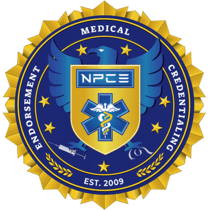News in Phlebotomy 2025
Breaking Ground: New Developments in Phlebotomy and Certification in 2025


As healthcare evolves, so does the field of phlebotomy. In 2025, several exciting developments are shaping the future of phlebotomy training, certification, and practice. These changes are streamlining how professionals enter the field, enhancing patient safety, and improving job opportunities for certified phlebotomists across the United States.
1. Digital Phlebotomy Certification Options Expand
One of the most significant recent developments is the expansion of online phlebotomy certification programs. Accredited institutions are now offering hybrid training models that combine online coursework with hands-on clinical externships. These flexible learning paths are ideal for working adults and students seeking a fast-track entry into the healthcare industry.
Key advantages include:
- Self-paced modules that allow students to study around their schedules
- Virtual simulations to enhance understanding before clinical practice
- National certification exam preparation built into coursework
Search Tip: If you’re considering certification, look for programs approved by organizations like the National Phlebotomy Certification Examination (NPCE) or American Society for Clinical Pathology (ASCP).
2. AI and Automation in Phlebotomy Training
Modern phlebotomy training now integrates artificial intelligence (AI) simulations to improve technique and reduce errors. Virtual veins, AI-driven feedback on needle placement, and simulated patient reactions are helping trainees master their skills faster and more accurately.
This approach not only enhances confidence in new phlebotomists but also reduces the risk of patient injury—a win for both healthcare providers and recipients.
3. Standardization of Certification Requirements Across States
Historically, phlebotomy certification requirements have varied by state. However, a push toward national standardization is gaining momentum in 2025. Efforts are underway to unify certification criteria, making it easier for certified phlebotomists to work across state lines without needing additional credentials.
This trend is particularly important for:
- Traveling phlebotomists
- Mobile health professionals
- Military medical personnel transitioning to civilian roles
4. Phlebotomy Career Pathways Are Diversifying
Phlebotomy is increasingly seen as a gateway to advanced healthcare roles. New career ladders include structured transitions from phlebotomist to medical assistant, nurse, or clinical laboratory technician. Certification bodies are aligning continuing education credits (CEUs) to support this upward mobility
Hot tip: Many employers now sponsor advanced certification programs or offer tuition reimbursement for continuing education.
5. Emphasis on Patient-Centered Care and Soft Skills
In response to patient feedback and healthcare trends, phlebotomy training programs now emphasize soft skills such as:
- Communication and empathy
- Cultural competency
- De-escalation techniques
These additions reflect a shift toward patient-centered care, especially in diverse or high-stress clinical environments like emergency departments or mobile clinics.
Conclusion: The Future of Phlebotomy is Brighter Than Ever
With advances in technology, training, and certification, the phlebotomy field is evolving to meet modern healthcare demands. Whether you are exploring how to become a certified phlebotomist or looking to advance your healthcare career, staying updated on the latest in phlebotomy certification and training is key.
Ready to take the next step? Explore online certification options to begin your journey in this growing healthcare profession.
